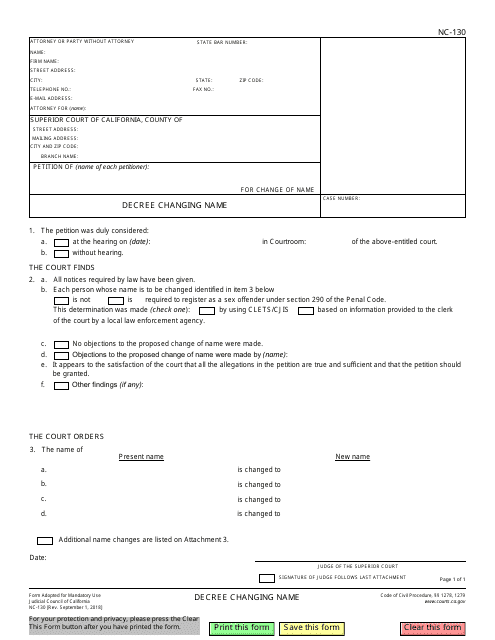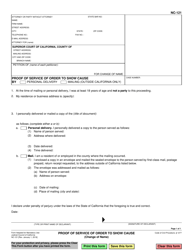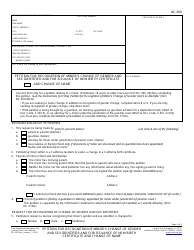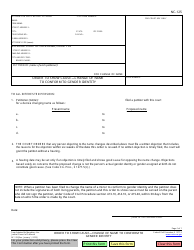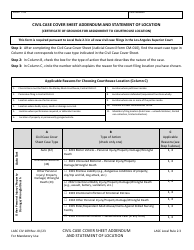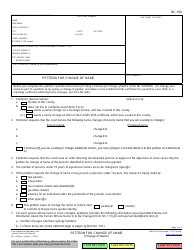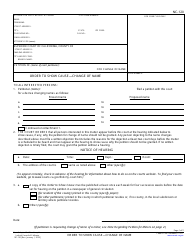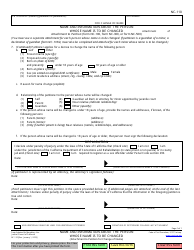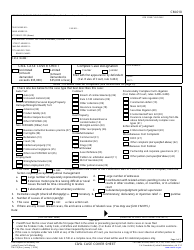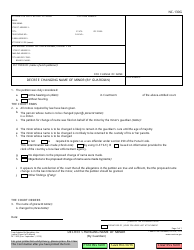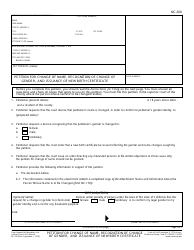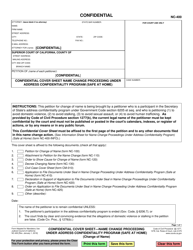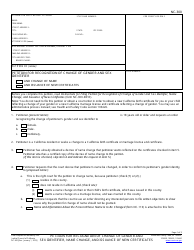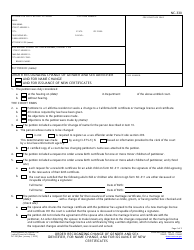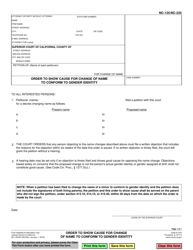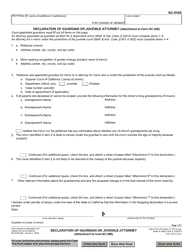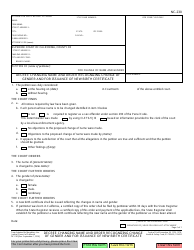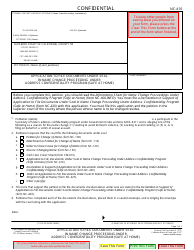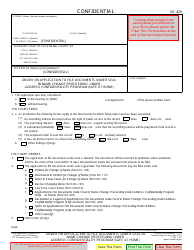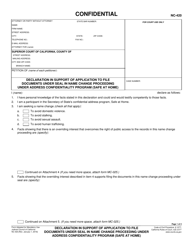Form NC-130 Decree Changing Name - California
What Is Form NC-130?
This is a legal form that was released by the California Superior Court - a government authority operating within California. As of today, no separate filing guidelines for the form are provided by the issuing department.
FAQ
Q: What is Form NC-130?
A: Form NC-130 is a legal form used in California to request a decree changing name.
Q: Who can use Form NC-130?
A: Any person who wants to legally change their name in California can use Form NC-130.
Q: What information is required on Form NC-130?
A: Form NC-130 requires information such as the current name, desired new name, reason for name change, and personal details of the petitioner.
Q: What is a decree changing name?
A: A decree changing name is a legal document issued by a court that allows an individual to change their legal name.
Q: How long does it take to get a decree changing name?
A: The processing time for a decree changing name can vary depending on the court's workload. It is best to check with the local court for an estimate.
Q: Can a decree changing name be denied?
A: Yes, a decree changing name can be denied if the court determines that the requested name change is for fraudulent or illegal purposes.
Q: Can I change my child's name using Form NC-130?
A: Yes, Form NC-130 can be used to change the name of a minor child with the consent of the child's parent or legal guardian.
Q: Do I need an attorney to file Form NC-130?
A: You are not required to have an attorney to file Form NC-130, but it may be helpful to seek legal advice if you have any concerns or questions.
Q: What happens after I file Form NC-130?
A: After filing Form NC-130, you will typically receive a court hearing date. During the hearing, the court will review your petition and may grant or deny the name change.
Q: Can I change my name to anything I want?
A: While you have the freedom to choose a new name, there are some restrictions. You cannot change your name to defraud others, commit illegal activities, or cause confusion.
Q: Will changing my name affect my legal rights and obligations?
A: Changing your name should not affect your legal rights and obligations, but it is important to update all relevant legal documents and records with your new name.
Q: What if I want to change my name in a different state?
A: If you want to change your name in a different state, you will need to follow the name change process specific to that state. The requirements may vary.
Q: Does changing my name also change my social security number?
A: No, changing your name does not automatically change your social security number. You will need to notify the Social Security Administration separately.
Q: Can I change my name more than once?
A: In most cases, you can change your name more than once, but frequent name changes may raise suspicions and could be denied by the court.
Q: What should I do if my name change request is denied?
A: If your name change request is denied, you may want to consult with an attorney to explore your options or understand the reasons for the denial.
Q: Can I use Form NC-130 to change my gender marker?
A: No, Form NC-130 is specifically for changing your name. Changing your gender marker typically involves a different process, which may vary by state.
Q: Can I use Form NC-130 to change my company's name?
A: No, Form NC-130 is for personal name changes. To change a company's name, you will need to follow the appropriate business or organizational procedures.
Form Details:
- Released on September 1, 2018;
- The latest edition provided by the California Superior Court;
- Easy to use and ready to print;
- Quick to customize;
- Compatible with most PDF-viewing applications;
- Fill out the form in our online filing application.
Download a fillable version of Form NC-130 by clicking the link below or browse more documents and templates provided by the California Superior Court.
